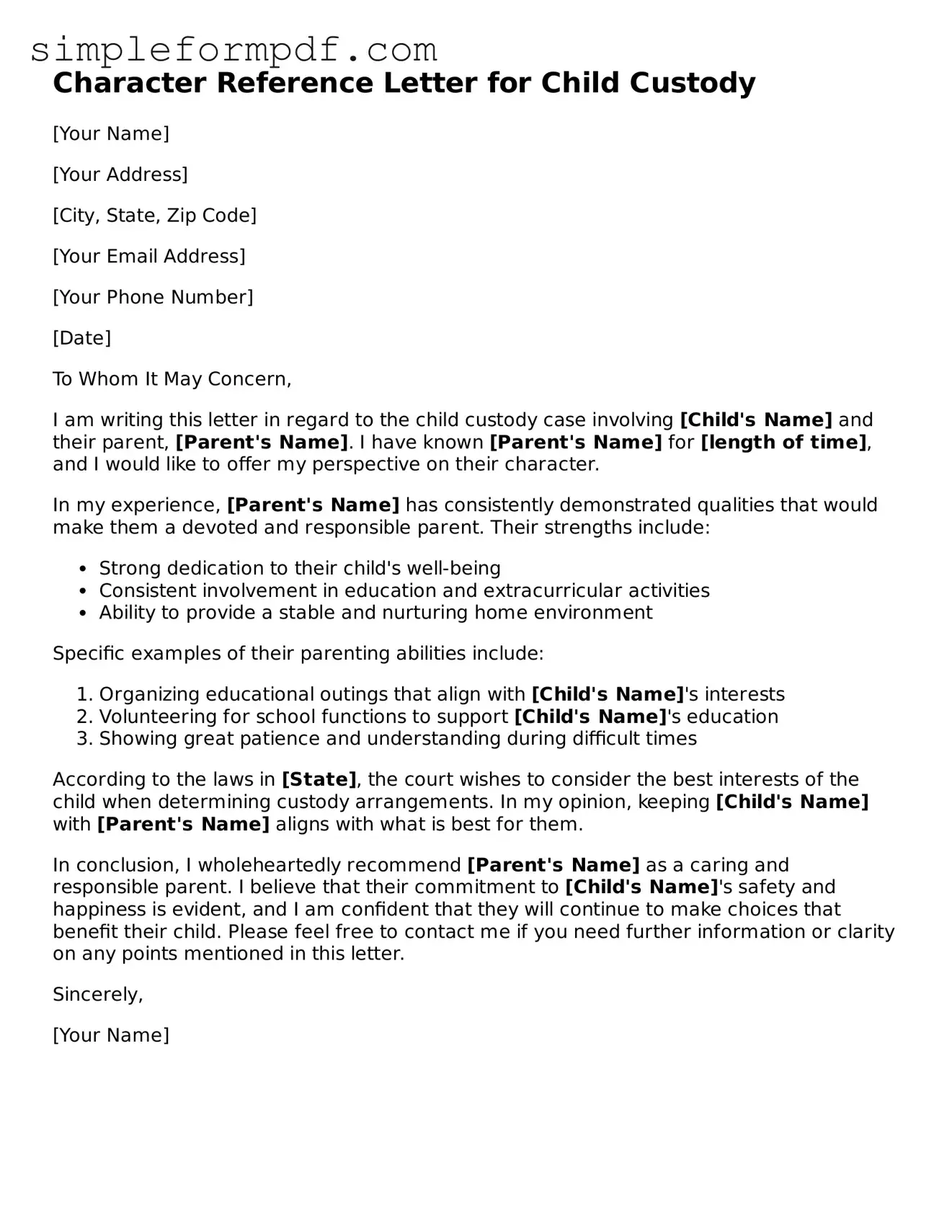Fillable Character Reference Letter for Child Custody Template
The Character Reference Letter for Child Custody form serves as a vital tool in family court proceedings, providing insights into a parent’s character and suitability for custody. This letter, often written by friends, family members, or colleagues, can significantly influence a judge's decision by highlighting the positive traits of the parent seeking custody. To ensure you present a compelling case, consider filling out the form by clicking the button below.
Launch Editor

Fillable Character Reference Letter for Child Custody Template
Launch Editor
Need instant form completion?
Finish Character Reference Letter for Child Custody online in just a few minutes.
Launch Editor
or
Download PDF
